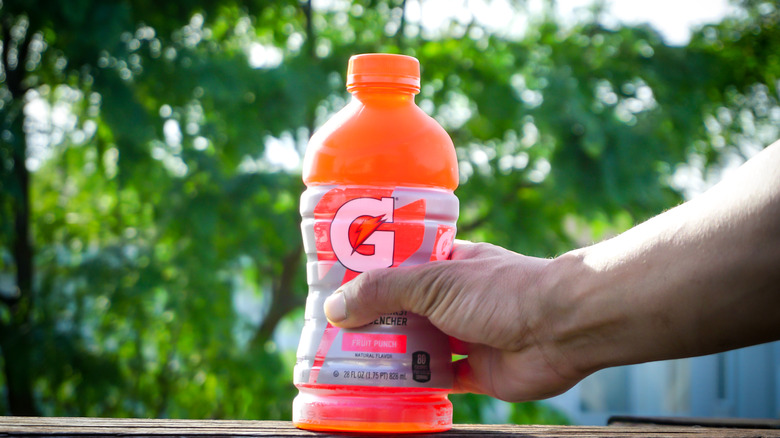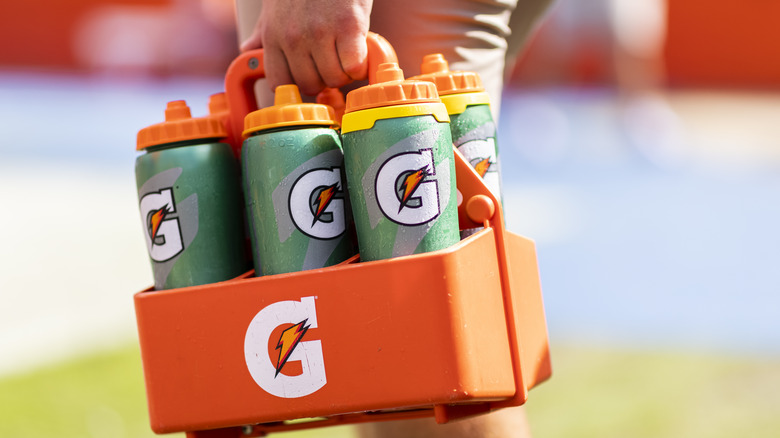The Real Meaning Behind Gatorade's Brand Name
Whether you're chugging a bottle of it after an afternoon jog or watching a coach get drenched in the stuff after the Super Bowl, Gatorade has entrenched itself in the world of sports as a drink meant for the athlete. Boasting a fluid that's filled with "electrolytes" and a wide variety of flavors, Gatorade markets itself as a sports drink that helps athletes regain their energy and boost their performance much faster than plain old water — or at least to some athletes, according to Popular Science. While some may balk at the idea of replacing natural water with something so sugary, there are some who always have a bottle or two with them whenever they're working up a sweat.
But have you ever wondered just what exactly the name "Gatorade" means? Past all the promos and marketing, has anyone ever explained to you just how "Gator" and "-ade" fit together? In a world of sports beverages whose names radiate energy and athleticism – like "Powerade" or "BodyArmor" – Gatorade might stand out as a bit less intuitive. But as the story goes, the origins of its unique name can be traced back to school and football.
The origins of Gatorade
According to the University of Florida, Gatorade was the result of an experiment meant to combat dehydration in football players. In 1965, Dewayne Douglas, an assistant football coach at the University of Florida, came to Dr. James Robert Cade and his team of researchers with a question: "Why were so many Gator football players getting sick in the unrelenting Florida heat?" The answer was a lack of bodily fluids, which were lost during intense physical exertion.
The researchers' solution was to create a drink that would allow salts and sugars to be absorbed into the body and replenish lost fluids faster than drinking water. It was only improving the taste that the sports drink "Gatorade" – whose name was taken from the university's football team, the Florida Gators – was born.
But if "Gator" in Gatorade comes from the Florida Gators, what exactly does the "-ade" stand for? Wouldn't it make some sense to call it "Gator-Aid," since it "aided" the Florida Gators? Darren Rovell's book "First in Thirst: How Gatorade Turned the Science of Sweat Into a Cultural Phenomenon" claims that "Gator-Aid" was actually considered. But if the drink was "ever to be marketed," the research team would have to run multiple trials just to show the drink is good enough to be a medical aid. Instead, it was simply called "Gatorade" as it was a type of "lemonade" the Florida Gators drank.

